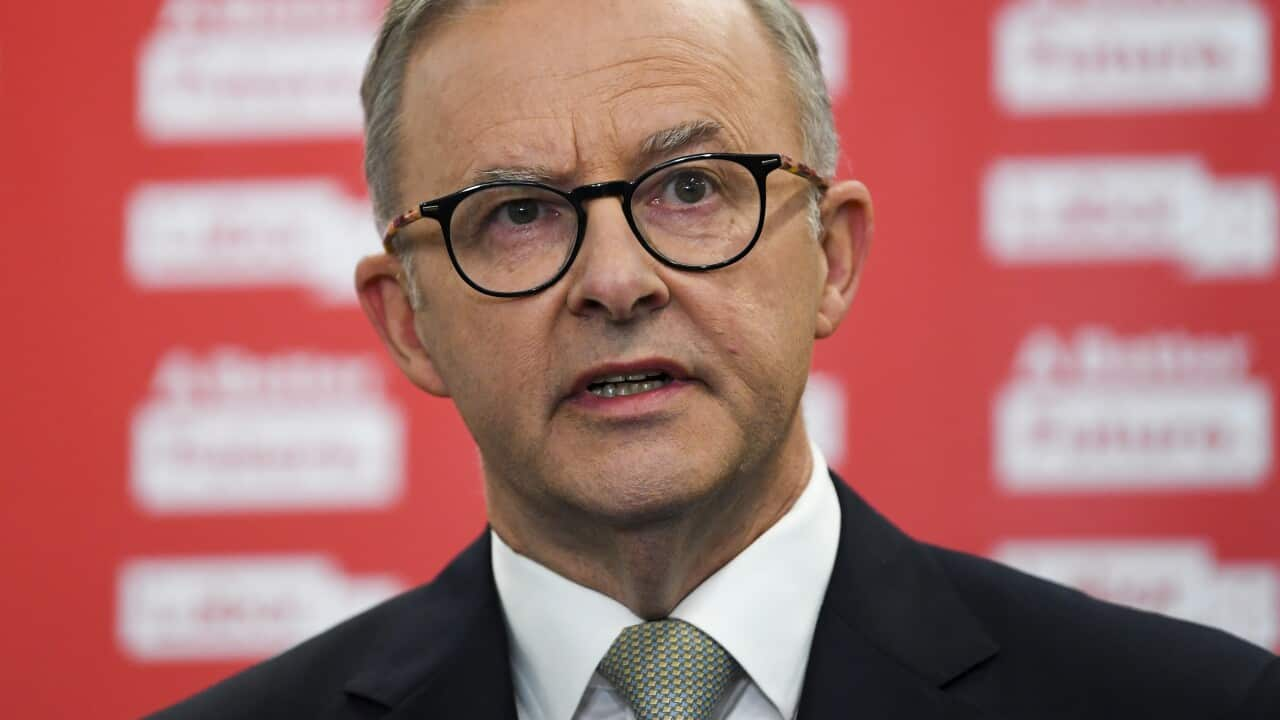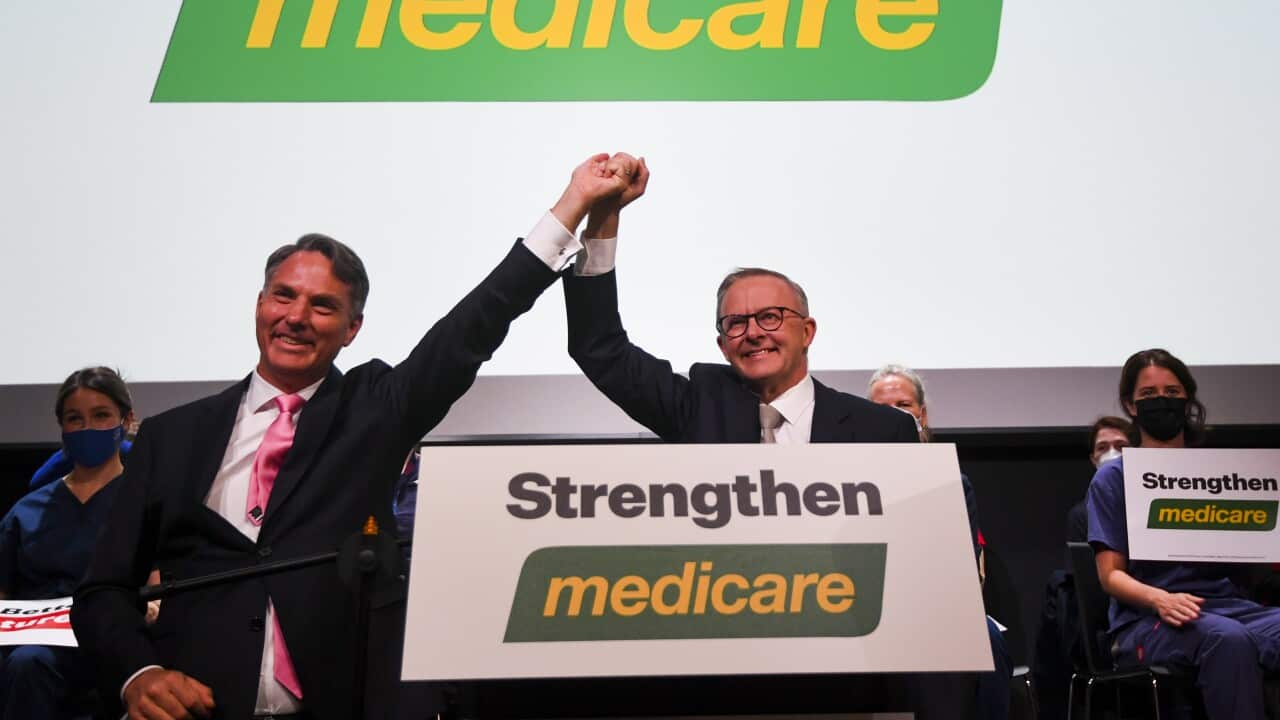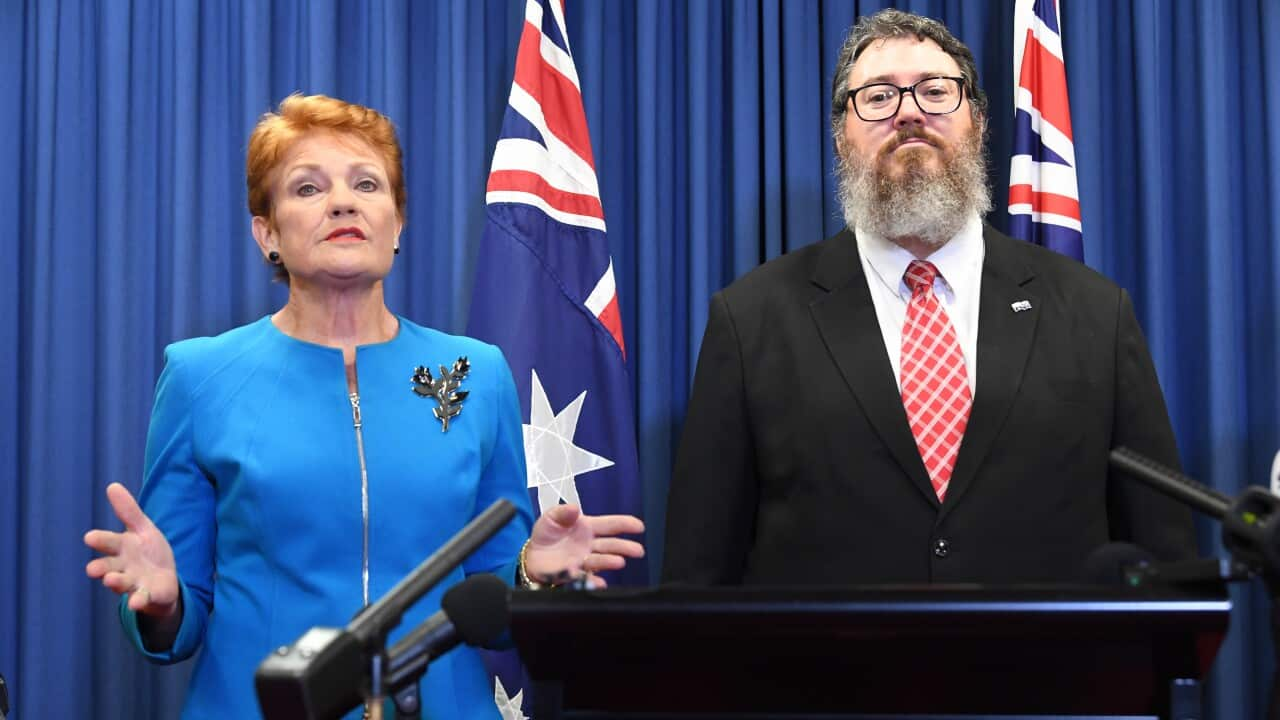Labor leader Anthony Albanese says increasing the rate of JobSeeker payments would be too damaging to the budget bottom line, defending a decision not to take the policy to the election.
Welfare groups have expressed deep disappointment after the federal Opposition in the unemployment benefit at this time.
The current rate for a single person is now $642.70 a fortnight, or about $46 a day, which advocates for those on the payment say is well below poverty estimates.
Mr Albanese — forced to explain his party’s decision — said the country's finances couldn't afford a boost to the JobSeeker rate.
“The truth is if we are fortunate enough to form government we will form [it] at a time when debt is heading towards a trillion dollars,” he told reporters on Wednesday.
“Whereby you can’t repair all of the damage or do everything that you want to do immediately – you’ll be fiscally responsible."
The Morrison government in February last year following years of campaigning from welfare organisations.
But the Australian Council of Social Service has maintained the boost does not go far enough, calling for it to increased further to at least $70 a day.
The group’s CEO Cassandra Goldie said the current rate was “completely inadequate” to cover basic costs, with people struggling to get by on the payment.
“People on JobSeeker must not be treated as a political football. It’s unacceptable they appear to be caught up in a scare campaign on budget deficits,” she said in a statement on Wednesday.
The Antipoverty Centre has also described Labor’s decision as a “devastating blow” for people on income support.
Former Labor leader Bill Shorten in 2019 — then known as the Newstart payment — hinting this would result in an increase to the payment.
But on Tuesday, Labor’s assistant treasury spokesperson revealed the party “don’t have a plan” for an independent review following the election.
Mr Albanese has defended its position, saying it hadn’t “dumped anything” from their policy platform.
“What we’ve said is we don’t have a plan to increase the Jobseeker allowance in our first budget,” he said.
“[But] every time governments do a budget they should look at what is responsible and do what they can to help those in need.”
The decision also means Labor will avoid a potential clash with the Coalition over the policy in the election campaign.
The Greens have called for the JobSeeker payment, pensions, youth allowance and other income support payments to be increased to $88 a day.
The payment rates would also be tied to the Henderson Poverty Line - which currently stands at $88 a day.
The relative measure of poverty sets a new benchmark for the income required to meet basic needs each quarter or three months.
Prime Minister Scott Morrison has previously described the level of the JobSeeker rate as “appropriate” when announcing it would be increased last February.
He has also emphasised the government’s focus on getting people off welfare and into jobs as part of its response during the election campaign.
Mr Albanese said he recognised the challenge posed by living on the income support payment, saying an increase should be considered at every budget to determine if it can be done.
“It’s disingenuous for people to say, who are politicians, 'I can live on that,'” he said.
"I’ve said consistently that you’ll consider these things in every budget that’s what every government should do."
The most recent federal budget shows net debt is forecast to reach $631.5 billion this financial year, increasing to $864.7 billion over forward estimates.
The increasing debt load has been tied to tens of billions dollars in emergency economic stimulus spending in response to the COVID-19 pandemic.












